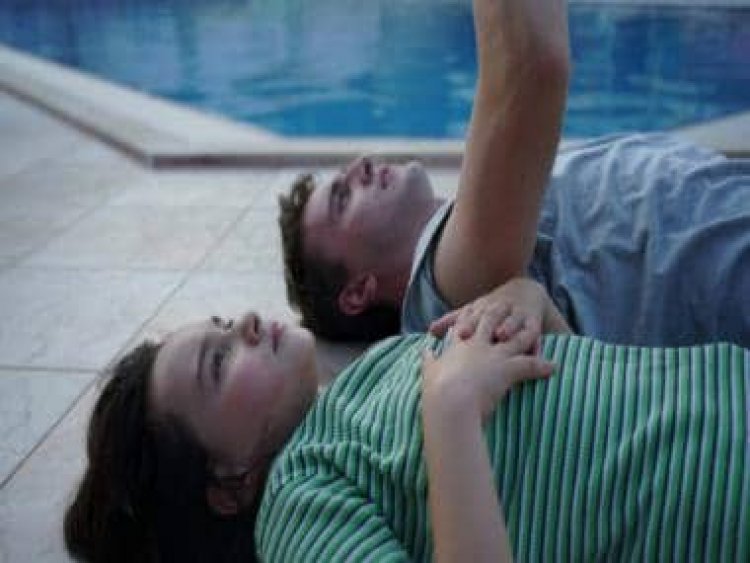Aftersun: The most realistic portrayal of depression and intergenerational trauma in visual medium
Aftersun: The most realistic portrayal of depression and intergenerational trauma in visual medium

For a film with arguably the most moving and realistic depiction of mental illness, Aftersun doesn’t reveal the official diagnosis of Calum, Sophie’s father. Yet, the writing’s on the wall. The word ‘depression’ or ‘suicide’ is not used once — yet we know Calum ends up dying by suicide after the trip. The final act of the film, complete with psychedelic, strobing lights and an infectious dance on Queen and David Bowie’s hit Under Pressure, hits the viewer like a rock. Feelings are felt. Emotions are stirred. A tear or two rolls down. Perhaps, it doesn’t matter what Calum’s official diagnosis is. The young Scottish father is trying hard to make his daughter happy despite the financial constraints and overwhelming sadness he experiences. 11-year-old Sophie is perceptive and can see through her father’s act. The restrain shown by Calum when Sophie hangs out with cool kids at the hotel who have all-access pass to the bar, his refusal to sing R.E.M’s Losing My Religion at the Karaoke, his inability to pay for the Turkish carpet — are all hints dropped by director Charlotte Wells which, perhaps, can only be appreciated on the second viewing.
Aftersun breaks every single stereotype one has come to associate with depression, suicide and mental illness. Depression doesn’t always unfold in dark rooms with over-the-top emotional breakdowns and dramatic crying sequences. At times, mental illness manifests as impromptu Tai Chi moves, self-help anxiety books (which are read in secrecy) and a disingenuous smile plastered for the sake of one’s kid. At times, it manifests as telling your diving instructor that you never thought you’d make it to 30, let alone 40. Calum had a traumatic childhood — one, where he couldn’t celebrate his 11th birthday due to his toxic family. In a rare moment of unfiltered honesty, Calum tells Sophie that he doesn’t wish to stay where he comes from. Calum is painfully aware that his mental health struggles and suicidal tendencies are a result of him growing up in a toxic family. He vows to give his daughter a better future — which is, perhaps, why he treats his estranged wife as his family. He also teaches Sophie self-defense should she find herself in danger in his absence. Calum makes a conscious effort to not pass on his trauma to Sophie by giving her a safe environment where all her needs are met.
However, Calum soon realizes intergenerational trauma is passed down unconsciously when Sophie says — “Do you ever feel like you’ve just done a whole amazing day, and you come home tired and down, and it feels like your bones don’t work? They are just tired. Everything is tired. And you’re just sinking”. Calum figures Sophie is showing signs of mental illness. In a dramatic moment marked by self-loathing, Calum spits on his mirror image, presumably because he feels guilty for passing his demons to his daughter. This guilt is reinvigorated when Calum doesn’t sing at the Karaoke with Sophie. Here, Charlotte Wells seems to be building a case for our parents’ generation, who we Gen-Z kids call out for not processing their childhood pain and taking mental health seriously. Perhaps, our parents didn’t know what they were going through either — especially since mental health wasn’t a part of the popular/mainstream discourse a couple decades back.
Aftersun is an ode to Calum’s parenthood which is self-aware, honest and far-sighted. Knowing fully well that the Turkey trip with Sophie is his last hurrah, Calum is recording his best moments on the camcorder so Sophie has documented memories of her father growing up. Calum is aware that losing him at a young age will leave Sophie with few memories of her father and she might need more to hold on to. The two-second frame of a postcard which appears in the final act of the film, was presumably sent to Sophie by Calum along with the camcorder footage after his death.
As Sophie uses this footage to trace back her childhood, she discovers Calum’s struggles were not very different from her own. Calum struggles to remember his traumatic 11th birthday while Sophie has visions of Calum dancing in a rave party — both trying to process their childhood trauma but failing miserably. Both tried not to pass their mental illness to their children knowing fully well about its devastating impact and long-lasting ramifications. A quote from popular Netflix show BoJack Horseman reads ‘You inherit your parents’ trauma but never fully understand it’. Suicide doesn’t end one’s suffering — it passes the suffering to our loved ones. Sophie becomes a container for Calum’s unprocessed pain and trauma. While Calum believed he was making memories with his daughter before bidding the world adieu, he ended up traumatizing Sophie even more, so much so that after getting married in her 30s and having a kid, she is heavily fixated on the Turkey trip.
Aftersun is complex, realistic and brutal. It is a painfully realistic portrayal of what mental illness can do to a family. Unhealed transgenerational trauma, as we see in Calum and Sophie’s case, if not healed, can uproot families and bring emotional distress. It is arguably the best portrayal of depression and intergenerational trauma in the visual medium.
Aftersun is streaming now on MUBI.
Deepansh Duggal is an entertainment, pop-culture and trends writer based in New Delhi. He specializes in op-eds based on the socio-political and gender issues in the world of entertainment and showbiz. He also writes explainers and occasionally reviews shows in the OTT space. He tweets at @Deepansh75.
Read all the Latest News, Trending News, Cricket News, Bollywood News, India News and Entertainment News here. Follow us on Facebook, Twitter and Instagram.
What's Your Reaction?



























































